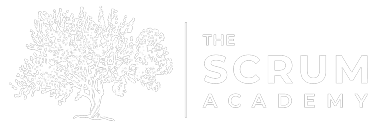My Response to Delete [ScrumMaster]
My friend and colleague, Tobias Mayer wrote a really interesting piece about eliminating the role of ScrumMaster in September. I finally had a moment to craft a response.
While I can agree with many of the points in the article, there are some areas of disagreement. It is an unfortunate truth that a mostly meaningless term, ScrumMaster, has become even more meaningless by the bad application of Scrum. In many cases, the role of the ScrumMaster has become a stalking horse for the status quo which is odd since Ken Schwaber defines the ScrumMaster as a change agent. That is a sad reality.
However, I disagree that we should just delete the role of ScrumMaster. Oddly enough, it seems that large organizations do not feel threatened by this role and, in some cases, have gone about institutionalizing the role as a career track with an official title. I suppose that is because as the role of ScrumMaster exists, and is commonly explained right now, the role is so devoid of content, it is not threatening to the status quo. What is so fascinating to me is that we now finally have a crack in the organization that is mostly overlooked by the organizational antibodies. A crack that can actually transform the world of work if we can change a role so devoid of content AND put goodness into it.
There are two main challenges surrounding this role:
- It is correct that only rare individuals have all the skills necessary to perform this role. In my experience, the role of ScrumMaster is really eight roles wrapped in one – see my post. It is very hard to find people who want to do all the roles, have the aptitude and the maturity to execute them well. Also, here is the sad part – it takes at least 4 to 5 years of self-study, practice and reflection to be good at this role.
- There is absolutely no role like this in corporate environment today. For people who are interested in doing this role well, there is no way for them to look at a peer, colleague or boss and say “OK – that is what an ScrumMaster does” or “If I do what he\she does, then I can do this role.” The main problem is while someone might see one or two of the ScrumMaster roles in one person (mentor and teacher or visionary and leader or expert communicator and facilitator or whatever combination), but no one has ever seen the TOTAL PACKAGE in one person. So to me, it is no surprise that many people who do the role just try their best based on pre-existing examples in the workplace.
However, is that the fault of the people trying to do the role the best they can? Or is that the fault of the people educating people on Scrum? Since I cannot speak for the multitudes who have tried to be the best ScrumMaster they can, I will save my comments for myself.
I feel part of the issue of this empty role resides with the educators of Scrum. Many in the Scrum education community don’t recognize that the ScrumMaster is eight roles in wrapped in one and\or fail to communicate this to the learners. Also, apart from the initial CSM class, the main Scrum education community (of which I am a part of) does not offer anything more in the way of continuing education. If we want to continue with the role of a ScrumMaster being a change agent, then we need to do better explaining what this person does and offer more to them.

